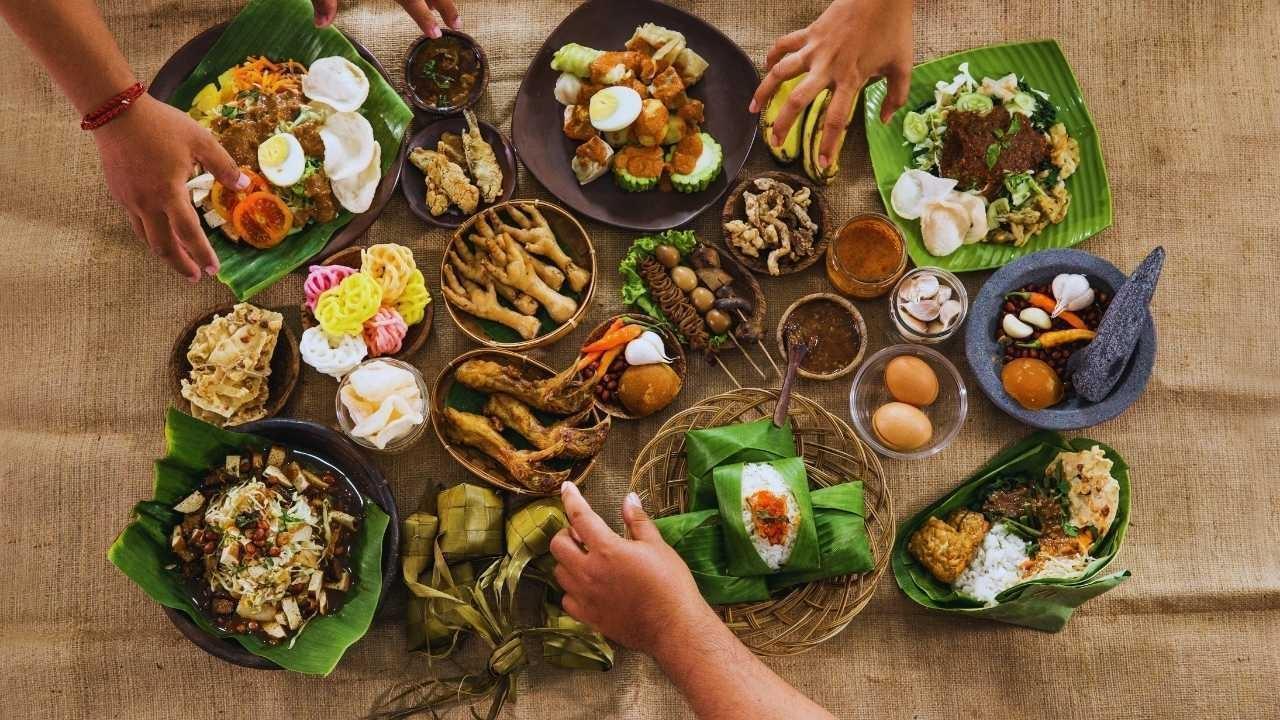
Post by : Anis Al-Rashid
In today’s world, culinary travel has gained significant traction, showcasing a fresh approach to exploring destinations beyond usual tourist spots. Travelers are drawn to immersive experiences that allow them to connect with local cultures through their cuisines. From markets to home kitchens, every meal offers a glimpse into the customs, history, and everyday life of a region.
Food tours have become especially popular, merging gastronomy with storytelling to guide visitors through local delights while revealing the deeper meanings behind each dish. By engaging all senses, these experiences are not only enjoyable but also educational and impactful.
Street food serves as a hub for cultural expression, often embodying age-old traditions within a single bite. Cities renowned for their street food such as Bangkok, Istanbul, and Mexico City offer vibrant culinary landscapes. Guided food tours navigate tourists through local markets and hidden alleys, introducing iconic dishes like pad Thai, kebabs, and tacos.
These tasting journeys delve deeper, with guides sharing the cultural and historical contexts of every dish. From the evolution of tacos in Mexico City to the integration of indigenous ingredients, street food tours promote an appreciation for culinary heritage.
Many culinary tours focus on farm-to-table experiences, letting visitors connect with the origins of their meals. Visiting local farms, vineyards, or cheese-making studios provides tourists a chance to see production processes up close.
Such encounters not only showcase fresh, local ingredients but also explain the environmental impact and economic importance of regional agriculture. A walk through Tuscany's olive farms or Napa Valley vineyards merges scenic views with real culinary education.
Hands-on cooking classes represent a key aspect of culinary tourism. Travelers gain traditional skills from local chefs while preparing dishes rich with cultural significance.
Be it pasta in Italy or dumplings in China, these interactive classes deepen one’s appreciation for culinary traditions, impart skills for recreating dishes back home, and foster lasting memories that extend beyond mere dining.
Charming food tours artfully weave gastronomy into storytelling. Guides share familiar anecdotes about historical events and cultural customs linked to each dish, turning a simple meal into a cultural education.
In Istanbul, a walking food tour might highlight how historical influences have shaped current Turkish cuisine, while Kyoto might reveal the philosophical underpinnings of its tea ceremonies. Story-focused tours enhance the travel experience, forging emotional connections that elevate understanding.
Today's culinary tourists are increasingly mindful of health and sustainability. Numerous tours highlight organic, locally sourced, and ethically produced ingredients. For example, seafood experiences might shine a light on sustainable practices, while farm visits may focus on regenerative agriculture.
Tour providers aim to promote mindful consumption, reducing waste and supporting local enterprises over international chains. Such practices align culinary tourism with responsible travel, benefiting both guests and host communities.
Diverse culinary encounters differentiate urban from rural experiences. Cities thrive on innovative cuisine and multicultural eateries, while rural settings emphasize seasonal ingredients and time-honored methods.
Travelers may choose to savor both experiences, enjoying urban street food tours alongside countryside farm-to-table dinners, leading to a well-rounded perspective of regional culinary identity.
Emerging technologies are transforming culinary tours and travel. Apps, VR experiences, and social media facilitate the discovery of exclusive restaurants, and allow booking of culinary experiences and participation in virtual cooking sessions.
These platforms provide reviews and curated itineraries, driving greater engagement. AI tools also offer personalized recommendations, tailoring food tours to individual tastes and preferences.
Many areas worldwide present signature culinary tourism offerings, such as:
Italy: Explore walking tours in Bologna and Florence, featuring pasta-making, cheese tastings, and gelato workshops.
Japan: Street food tours and sushi-making classes abound in Tokyo and Osaka, along with tea ceremonies and sake tastings.
Mexico: Oaxaca and Mexico City host mole workshops, mezcal tastings, and market tours led by local chefs.
Morocco: In Marrakech, explore spice markets, traditional cooking classes, and cultural dining in riads.
These examples showcase culinary tourism's power in connecting travelers to the heart of every destination.
Culinary tourism significantly aids in cultural preservation. By generating economic opportunities from local cuisines, communities are motivated to sustain traditional recipes and cooking practices.
Through workshops and tours, chefs and local artisans pass down knowledge. Tourists, in response, gain valuable insights into these traditions, fostering a cycle of cultural preservation that extends well beyond their travels.
For those eager to embark on food-centric journeys, thoughtful planning is key:
Research Culinary Destinations: Explore regions famed for unique culinary practices and traditions.
Choose Reputable Tour Operators: Opt for guides who are knowledgeable, promote ethical practices, and prioritize local communities.
Account for Dietary Restrictions: Ensure chosen tours cater to any food allergies or dietary preferences.
Engage in Activities: Involve yourself in cooking, tasting, and learning experiences instead of just spectating.
Share Responsibly: Be mindful of local customs and avoid commercializing cultural practices.
Careful culinary travel planning leads to authentic experiences that honor taste and tradition.
Culinary travel transcends mere food tasting; it embodies a profound understanding of the culture, history, and traditions reflected in every dish. From vibrant street food excursions to immersive farm visits and interactive cooking lessons, food tours unveil a region's unique identity.
As travelers increasingly seek authentic and meaningful experiences, culinary tourism plays a vital role in bridging exploration and cultural engagement. By embracing authenticity and sustainability, these adventures not only delight the senses but also respect the rich heritage and lives of those behind each destination.
This material is designed solely for informational purposes. It offers insights into culinary travel and cultural experiences. Travelers should always check local guidelines and regulations regarding health and safety when planning their trips.










NBA Friday Highlights: Miami, Lakers, Milwaukee, and Clippers Triumph
Miami, Lakers, Bucks, and Clippers secure victories in thrilling NBA Friday games with standout perf

Doncic Dominates with 49 Points as Lakers Defeat Timberwolves 128-110
Luka Doncic scores 49 points to propel the Lakers past the Timberwolves 128-110; Reaves and Hachimur

Kings Narrowly Defeat Jazz 105-104 with Sabonis' Late Heroics
Domantas Sabonis' last-minute shot secures a thrilling 105-104 win for the Kings against the Jazz in

Argentina's Friendly Match with India Delayed, New Date to be Announced
Argentina's friendly against India in Kochi is postponed; a new date will be confirmed soon due to F

Rohit and Kohli Conclude ODI Journeys in Australia with a Win
Rohit Sharma and Virat Kohli close their ODI chapter in Australia with a win, partnering for an unbe

George Russell Dons Lucha Libre Mask at Mexican Grand Prix
George Russell sported a Lucha Libre mask to experience the Mexican GP stands while rookie Fred Vest